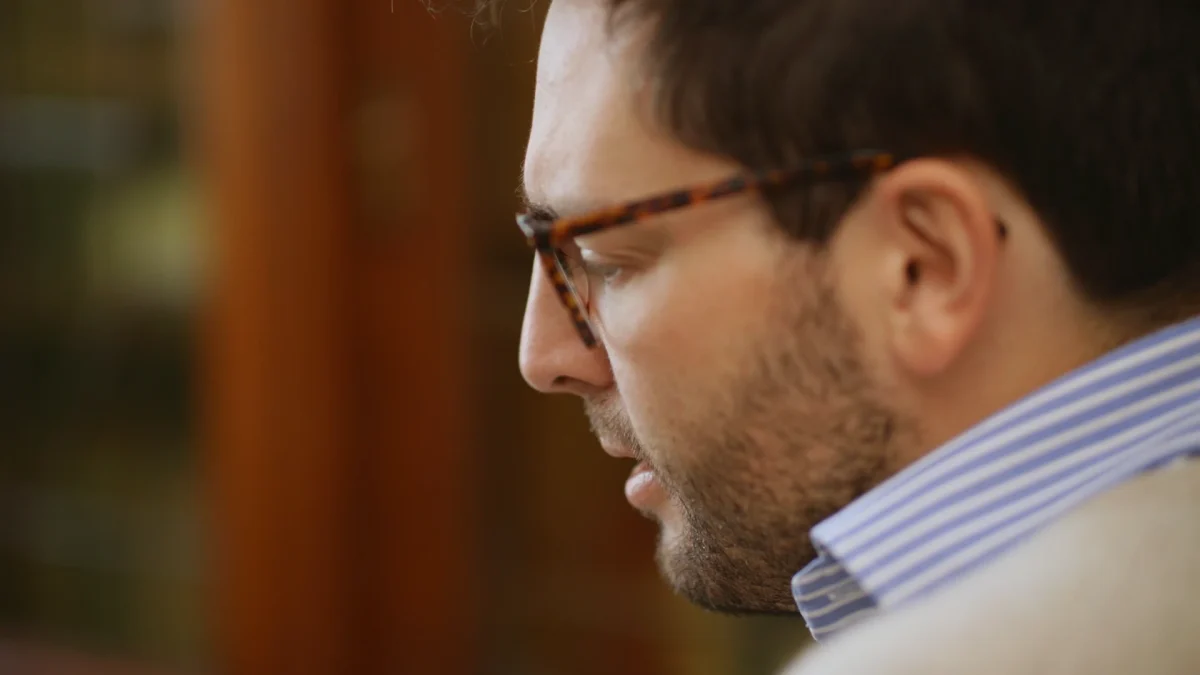
Worried About Secret Drinking?
Alcohol misuse isn’t always obvious.
Secret drinking is a pattern of behaviours that include hiding, downplaying, or denying alcohol use. Drinking in secret can also be a progressive, escalating habit that may spiral into a compulsion or alcohol addiction, harming physical and mental well-being and relationships.
It can be difficult to understand how to help a loved one who secretly drinks. Perhaps you’re unsure of the extent of the issue or how to confront it. Additionally, if you are prone to drinking in secret, you might not be willing to accept the full extent of the problem.
In this article, we discuss the following topics to help raise awareness of the signs of drinking in secret and let you know how to seek help with CATCH Recovery. Alternatively, contact us to find confidential support and learn more about our services and the treatments we offer.
What Is Secret Drinking?
Secret drinking is the act of deliberately hiding alcohol consumption from others, including family, friends, and co-workers.
It’s important to make the distinction between casually drinking alone and drinking in secret; the key difference is intent. Secret drinkers actively hide their alcohol consumption to avoid exposure to and awareness from others.
Drinking in secret can pose serious problems for physical and mental health, as it may indicate an underlying alcohol use disorder. Although drinking in secret may be a decision, in the case of a hidden alcohol addiction it’s often driven by guilt and shame.
This type of drinking can go unnoticed or downplayed for a long time, deepening denial and making it harder to seek support–highlighting the importance of recognising the symptoms.
How Can You Tell if Someone is a Secret Drinker?
Someone with alcohol use disorder may go to great lengths to hide their habits from others. In fact, reports have shown that approximately 25% of Brits have hidden their alcohol intake from others–especially their GP. People may drink in secret in an attempt to protect themselves, avoid judgement and shame due to cultural norms, and not worry about family or friends.1,2
Need more information?
Are you looking for more information about alcohol addiction? Discover more with CATCH Recovery.
Below are some of the common indicators of secret drinking:
1. Secretive behaviour
- A secret drinker might hide alcohol in unusual locations where no one would look, like behind furniture, in personal belongings
- Disappearing regularly, such as going to the bathroom, bedroom, garage, or car
- Defensiveness around drinking habits and lying about drinking levels
- Pouring alcohol into different containers such as juice bottles, travel mugs
- Hiding empty bottles
- Frequent trips to the shops (to purchase alcohol)
- Refilling vodka or gin bottles with water to hide how much has been drunk
- Unable to answer simple questions about their whereabouts.
2. Avoidance
- Avoiding eye contact, speaking slowly to hide intoxication, or not standing too close to others so alcohol can’t be smelled
- Chewing gum or wearing a lot of perfume/aftershave to hide the scent of alcohol.
3. Emotional symptoms
- Mood swings and irritability
- Anxiety and nervousness
- Depression, low-mood
- Emotional numbness and isolation.
4. Financial irregularities
Hidden signs of drinking include unexplained financial issues, such as withdrawing cash, secret bank cards, decreased savings or needing to borrow money for everyday goods.
Many of the signs of drinking in secret may be overlooked, but they are critical to recognising and understanding alcohol addiction. If someone you know exhibits these signs, it may be important to address the issue with care and compassion.
The Stages of Secret Drinking
Drinking in secret may not necessarily mean you have an addiction, but it is a progressive habit. It creates a complicated web of emotional, social and environmental triggers and problems making it seriously damaging to your well-being and difficult to manage.
The three stages of secret drinking include:
1. The Initial Stage: Occasional Secret Drinking
This stage is characterised by intermittent secret drinking, often linked to situations where you might not feel comfortable drinking openly. Hiding drinking might be rationalised as stress relief, anxiety management, or the need to feel more comfortable socialising.
2. The Middle Stage: Regular Secret Drinking
Secret drinking becomes a more ingrained part of routines, such as having a drink in the morning before work or making excuses not to attend social events. In this stage, secret drinking may be motivated by emotional needs, such as to escape from work stress or personal pressures. You may begin rationalising your habits and go to great lengths to conceal them from others.
Relationships and health may start to decline during this stage, as lying, social isolation and heavy drinking become more commonplace.
3. The Advanced Stage: Compulsive Secret Drinking
By this stage, secret drinking becomes a compulsion driven by cravings and withdrawal symptoms. You may feel compelled to drink in secret and distressed when unable to do so. Attempts to conceal drinking become more elaborate, so dishonesty, social withdrawal and drinking habits increase. Risk-taking behaviours such as driving under the influence may occur.
What are the Risks Associated with Hidden Alcohol Misuse?
The National Institute of Alcohol Misuse and Alcoholism (NIAAA) describes how alcohol misuse over time increases the risk of alcohol use disorder. The stages of secret drinking help highlight this risk, demonstrating that occasional drinking habits can become more ingrained, leading people to feel trapped by their dependence on alcohol. 3
The consequences of compulsively drinking in secret are physical, mental and social. These include risks of developing liver disease or heart problems, mental health issues, and deterioration in relationships and professional performance.
Emotional and Psychological Challenges:
- Emotional turmoil leading to stress
- Guilt and shame
- Increased risk of mental health problems
- Anxiety due to fear of discovery
- Withdrawal and isolation
- Low self-esteem.
Physical Health Challenges:
- Physical dependence and addiction
- Risk of issues such as liver damage, cardiovascular issues, and alcohol poisoning
- Consuming alcohol in unsafe ways, such as mixing substances or drinking more than intended.
Personal and Professional Social Challenges:
- Breakdown of trust and communication in personal relationships, fuelling suspicion and hurt
- Socially isolating to reduce the risk of alcohol consumption being detected
- Decline in work performance due to impaired judgement and the stress and anxiety around hiding drinking
- Risk of job loss if discovered to be intoxicated in the workplace.
Legal Trouble:
In addition to these challenges, people who secretly drink may engage in risky behaviours, such as driving under the influence, which could result in legal consequences such as being arrested, fined, banned from driving–and even imprisoned.
How Can I Talk To a Loved One Who Is Hiding Their Drinking?
If you’re concerned about someone you know, it might be time to reach out. It can be daunting raise this conversation this but there are some methods which can help you to approach the matter delicately.
Consider the following approach:
- Picking the right time and place to talk – somewhere private and quiet is ideal
- Open up the conversation gently
- Broaching your concerns with compassion and empathy, using “I” statements. For example, “I’ve noticed something recently, and I would like to talk to you about it.”
- Provide examples of your concerns, without making it seem like the other person has been under observation
- Listen carefully and actively by maintaining eye contact and open body language
- Ask them how they would like to proceed instead of telling them what they should do
- If they resist visiting their GP and don’t like the idea of a course of private therapy then suggesting a one-off assessment by a therapist might be an easier starting point.
Seeking Support – CATCH Recovery
Early intervention can prevent an alcohol dependence from escalating. It is a daunting time when you suspect that someone you love has a problem. If you have a loved one who is currently struggling with secret drinking or alcohol addiction, you can learn more about the benefits of an intervention here. Professional help is within reach and CATCH Recovery can help to guide this process for you with our dedicated and confidential support.

Begin Your Journey of Recovery Today
Frequently Asked Questions
-
Why do people hide their drinking habits?
Secret drinkers might hide their drinking habits to protect their actions or others from the reality of the problem. They may also hide their alcohol consumption because they are in denial, feel shame about their drinking, or they don’t want to be judged by others.
-
Why is secret drinking dangerous?
Drinking in secret is dangerous because it is often an escalating pattern of behaviours that can lead to addiction–and severe physical signs, and mental and social consequences.
-
What is the difference between social drinking and secret drinking?
The main difference is intent. A secret drinker actively hides that they’re drinking alcohol to prevent others from seeing their alcohol use.
-
How can someone stop secret drinking?
Early intervention is best for helping prevent secret drinkers from escalating into addiction. It’s recommended that someone who compulsively drinks in secret seek professional support.
-
What should I do if I find hidden alcohol?
Finding hidden alcohol may be a sign that someone you know is secretly drinking. The best way to support them is to speak to them with empathy, compassion, and non-judgement to determine whether they need help. You could also suggest they make an appointment with their GP and go along for moral support.
-
References
[1]A quarter of Brits admit to having lied about how much they drink. British Liver Trust.
[2] Hammarlund R, Crapanzano KA, Luce L, Mulligan L, Ward KM. Review of the effects of self-stigma and perceived social stigma on the treatment-seeking decisions of individuals with drug- and alcohol-use disorders. Subst Abuse Rehabil. 2018 Nov 23;9:115-136. doi: 10.2147/SAR.S183256. PMID: 30538599; PMCID: PMC6260179.
[3] The National Institute of Alcohol Misuse and Alcoholism (NIAAA): Drinking Levels and Patterns Defined.